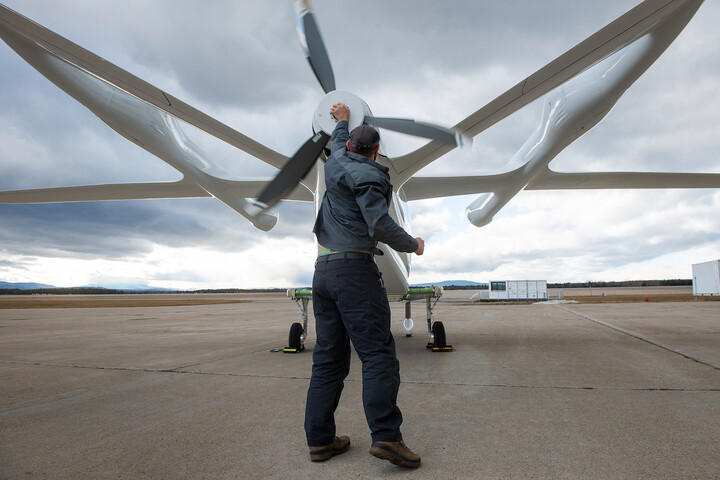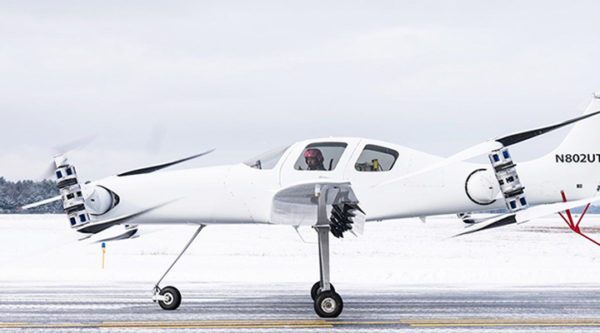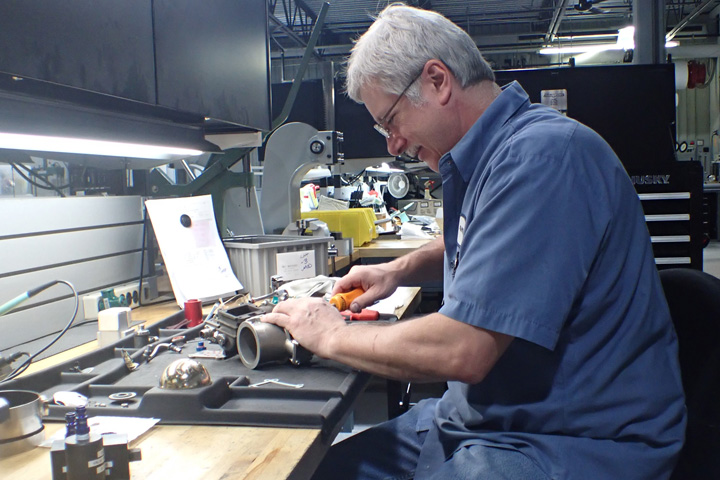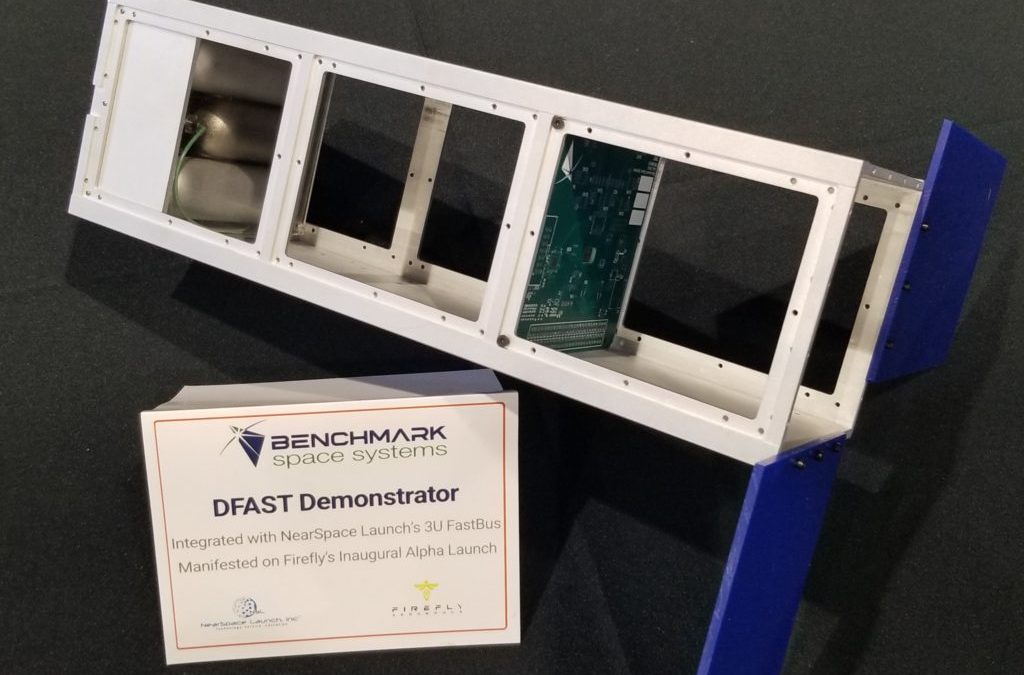Until recent years, Vermont’s $2 billion aerospace industry has been mainly comprised of parts manufacturing, rather than whole airframe construction and design, explains Kyle Clark, founder and chief test pilot at Burlington’s Beta Technologies.
Beta’s Alia changed all that.
Alia-250, imposing, futuristic and sleek, is an electric vertical takeoff and landing aircraft capable of transporting cargo and passengers on long-range flights. Beta Technologies staff talk about the craft as if it’s a person, and when it’s brought into the hangar for maintenance or testing, the atmosphere takes on the crackle and buzz of a meeting with a celebrity.
Right now, there are about one and a half Alias in existence. In April 2021, Beta Technologies inked a deal with United Parcel Service to sell 150 to the logistics and delivery firm.
UPS will use its Alia fleet for deliveries in small and mid-size markets to cut down on fossil fuel usage. Beta Technologies plans to expand as a result of the deal, eyeing a new 400,000-square-foot facility and a staff totaling 1,000, up from its current 250-person-deep bench. As Clark pointed out, that means more than a salary for just Beta’s staff; the 30,000 people employed at Vermont aerospace manufacturing firms will benefit, too.
Beta Technologies also has contracts with Blade for passenger aircraft, United Therapeutics, and has approval from the United States Air Force to fly on behalf of the military.
According to Chris Carrigan, vice president of the Vermont Chamber of Commerce, Vermont’s aerospace industry supports 9,500 direct jobs in Vermont and accounts for 2.2% of its gross domestic product. “Vermont has a thriving aerospace and aviation industry with a tradition going back before the Civil War of precision machining,” says Carrigan.
In addition to Beta, Carrigan highlighted aviation firms with Vermont bases like GE Aviation in Rutland, General Dynamics Ordnance and Tactical Systems, Raytheon Technologies and Bennington’s KAMAN as contributors to the state’s industry.
Vermont-made parts go into the Boeing 787 Dreamliner and the 25mm Gatling gun used in the F-35 joint-strike air fighter for the Vermont Air National Guard.
Raytheon Technologies recently signed a deal with Vermont’s GlobalFoundries to produce 5G communications chips.
“We have an amazing workforce in Vermont” for aviation companies, offers Clark. “Vermont is primed to become a hotbed for tech and aerospace jobs because of its workforce, training pipeline and existing parts manufacturing capabilities.”
Vermont’s education system offers a pipeline for students to get involved early in their careers, too. Carrigan cited programs like those at Vermont Technical College, Vermont Flight Academy, Green Mountain Flight Academy and Burlington Technical Training Center.
“It’s really unique that Burlington is adjacent to probably the best aircraft testing facility this side of the Mississippi,” Clark said, referring to BTV’s large runway.
“Vermont has two really unique assets. No. 1, it’s just south of Montreal, where there’s a massive aerospace intellectual capital pocket, and it also has the (Vermont) Air National Guard here, the Green Mountain Boys,” Clark said.
“We have a whole contingent of former Air National Guard pilots that have stuck around and are working here. … Vermont isn’t really off the beaten path when it comes to highly qualified aerospace talent.”
Carrigan also notes the state’s position in the Quebec-New England Aerospace Trade Corridor as a benefit to aerospace firms. Vermont is between the Montreal aerospace cluster and one in Hartford, Conn., and groups like the Vermont Chamber of Commerce are working to more strongly link the three regions for sharing contracts, connections and best practices.
Clark says Beta makes a point of finding people who have lived in Vermont, but then left to work or study elsewhere, and recruiting them to return. Beta employees have pedigrees that include time at Tesla, Boeing and Pratt & Whitney.
“We actively (seek) them out as high-quality engineers that had earned very respectable positions at those companies and gave them an opportunity to come back to Vermont and do something in the field of electric transportation that was intellectually interesting and had an association with aviation that was appealing to them. They brought their whole families back here to Vermont,” Clark said. “Vermont’s a wonderful place for people who like the outdoors, like associating with thoughtful and engaging intellectual people and people who like a healthy lifestyle. Those folks turn out to be really good contributors to a team like this. It’s strategically beneficial to our business to have that quality of people here.”
“Vermont’s aerospace and aviation has a bright future. We have a lot of exciting projects in the works, manufacturing, with the right programs I think we can recruit the right students and recruit the right people for tomorrow,” Carrigan said.
“I think given the pandemic there’s been a paradigm shift, and I think people are recognizing the quality of life and the opportunity to move to and live, work and play in Vermont. There are remote opportunities as well, but I think we have definitely seen an influx of new people into Vermont, and that’s a good thing.”




